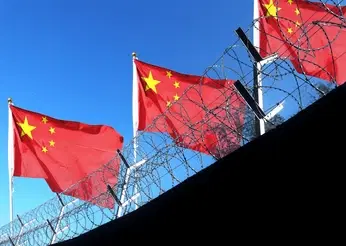
The Chinese government has strongly opposed what it calls U.S. efforts to undermine the Belt and Road Initiative (BRI) through coercion and pressure. This comes as Panama announced its decision not to renew its Memorandum of Understanding (MoU) on the initiative.
Speaking at a regular press briefing in Beijing, Chinese Foreign Ministry Spokesperson Lin Jian criticized the U.S. for allegedly sabotaging the BRI and expressed disappointment over Panama’s withdrawal from the agreement.
“China firmly opposes the U.S. smear and sabotage of Belt and Road cooperation through pressuring and coercion, and deeply regrets Panama’s decision not to renew the MoU on the Belt and Road Initiative,” Lin stated.
Panama’s President, José Mulino, recently instructed a 90-day notice for withdrawal from the BRI agreement, a move that coincided with an upcoming visit by U.S. Secretary of State Marco Rubio. Lin emphasized that China remains committed to strengthening its relations with Panama despite external influences.
Since establishing diplomatic ties, China and Panama have seen rapid growth in bilateral relations, with multiple successful cooperation projects under the BRI framework. Lin urged Panama to consider the broader benefits of continued collaboration and to resist external interference.
China to Play Key Role in AI Global Governance
Addressing China’s role in global Artificial Intelligence (AI) governance, Lin confirmed that Vice Premier Zhang Guoqing will represent China at the AI Action Summit in France from February 9 to 12. The summit aims to foster international collaboration on AI regulation and development.
“China is an active advocate and practitioner of AI global governance,” Lin said, citing President Xi Jinping’s 2023 Global Initiative for AI Governance. He added that China and France had already released a joint declaration on AI cooperation, reinforcing China’s commitment to shaping a responsible and secure AI landscape.
Through the summit, China aims to enhance dialogue, build cooperation, and promote the implementation of the United Nations’ Global Digital Compact. The country also extended an invitation for global participation in the 2025 World AI Conference in China, emphasizing the need for an inclusive AI governance framework.
China’s response underscores its broader ambitions in global infrastructure development and AI governance, positioning itself as a key player amid shifting geopolitical alliances.
Comments